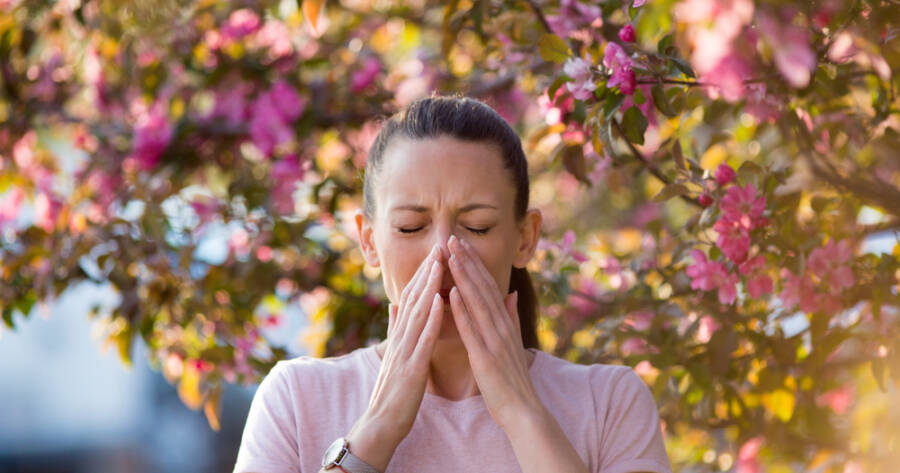Seasonal allergies can make even the sunniest days feel miserable. Runny noses, itchy eyes, and constant sneezing are no fun! While medication helps many people, it’s not the only way to find relief. Natural approaches and simple lifestyle changes can reduce symptoms and help you feel more comfortable through allergy season. From adjusting your environment to strengthening your body’s defenses, there are practical ways to manage allergies without depending on pills or sprays every day.
Keep Pollen Out of Your Home
One of the simplest ways to reduce allergy symptoms is by keeping outdoor allergens from entering your home. During peak pollen times (especially early mornings and windy days), keep windows and doors closed. Use air conditioning instead of window fans, and clean filters regularly to trap allergens more effectively.
After spending time outdoors, change your clothes and shower to wash away pollen that may have settled on your skin or hair. Wipe your pet’s paws and coat after walks, since animals can track allergens indoors. Taking these small steps can significantly cut down your exposure and help your home remain a safe, allergy-free zone.
Rinse Allergens Away with a Saline Rinse
A daily nasal rinse can be a game-changer during allergy season. Using a saline spray or neti pot helps flush pollen, dust, and other irritants from your nasal passages. This simple habit reduces congestion, eases sinus pressure, and keeps your airways clear, without the side effects of medication.
Make sure to use sterile or distilled water when rinsing and clean your device after each use to prevent bacteria buildup. For many allergy sufferers, a daily saline rinse becomes a natural and effective part of their morning or evening routine. It’s gentle, quick, and can offer noticeable relief.
Clean and Dust Regularly
Dust, mold spores, and pollen can collect quickly on surfaces, especially during allergy season. Vacuuming with a HEPA filter, dusting with a damp cloth, and washing bedding weekly in hot water can all reduce allergen buildup. Pay close attention to high-traffic areas and places where pollen might sneak in—like entryways and windowsills.
Use an air purifier in your bedroom or main living area to filter out microscopic irritants from the air. If you’re especially sensitive, consider removing rugs or heavy drapes that trap dust. A clean, allergen-reduced space makes a noticeable difference in how your body reacts indoors.
Consider Natural Supplements to Support Immune Health
Some natural supplements may help the body respond more calmly to allergens. Local honey, for example, is thought to expose your immune system to trace amounts of pollen, potentially reducing sensitivity over time. While more research is needed, many people report relief from incorporating it into their diets.
Other popular options include quercetin (a natural antihistamine found in apples and onions), vitamin C, and butterbur. However, always consult with a healthcare provider before starting any new supplement, especially if you have existing conditions or are taking other medications. When used responsibly, natural remedies can offer gentle support for managing allergy symptoms.
Adjust Your Diet to Reduce Inflammation
What you eat can influence how your body reacts to allergens. An anti-inflammatory diet (rich in fruits, vegetables, omega-3 fatty acids, and whole grains) can help reduce immune overreactions. Foods like leafy greens, berries, turmeric, and flaxseeds have natural properties that may calm allergy flare-ups.
Avoiding processed foods, added sugars, and excessive dairy may also ease congestion and reduce mucus buildup. Staying hydrated is equally important, as water helps thin mucus and keeps your sinuses flowing freely. Nourishing your body from the inside out can support your immune system’s ability to handle seasonal changes.
Keep Tabs on the Forecast
Monitoring pollen forecasts can help you plan your day and avoid unnecessary exposure. Many weather apps and websites offer daily allergy levels based on your location. On high-pollen days, consider rescheduling outdoor activities or wearing a mask if you need to be outside for extended periods.
Pollen counts tend to be highest in the early morning and on dry, windy days. Try running errands later in the afternoon and save workouts for indoor spaces when pollen is at its peak. With a little planning, you can enjoy the outdoors while minimizing your symptoms.
Natural Relief Is Within Reach
Managing seasonal allergies without medication is possible—it just takes a bit of awareness and a few lifestyle tweaks. By limiting exposure to allergens, supporting your body through nutrition and routine, and keeping your living space clean, you give yourself a better chance at breathing easy. These natural strategies may not eliminate allergies completely, but they can make your symptoms far more manageable. A little consistency can go a long way in helping you feel better all season long.

